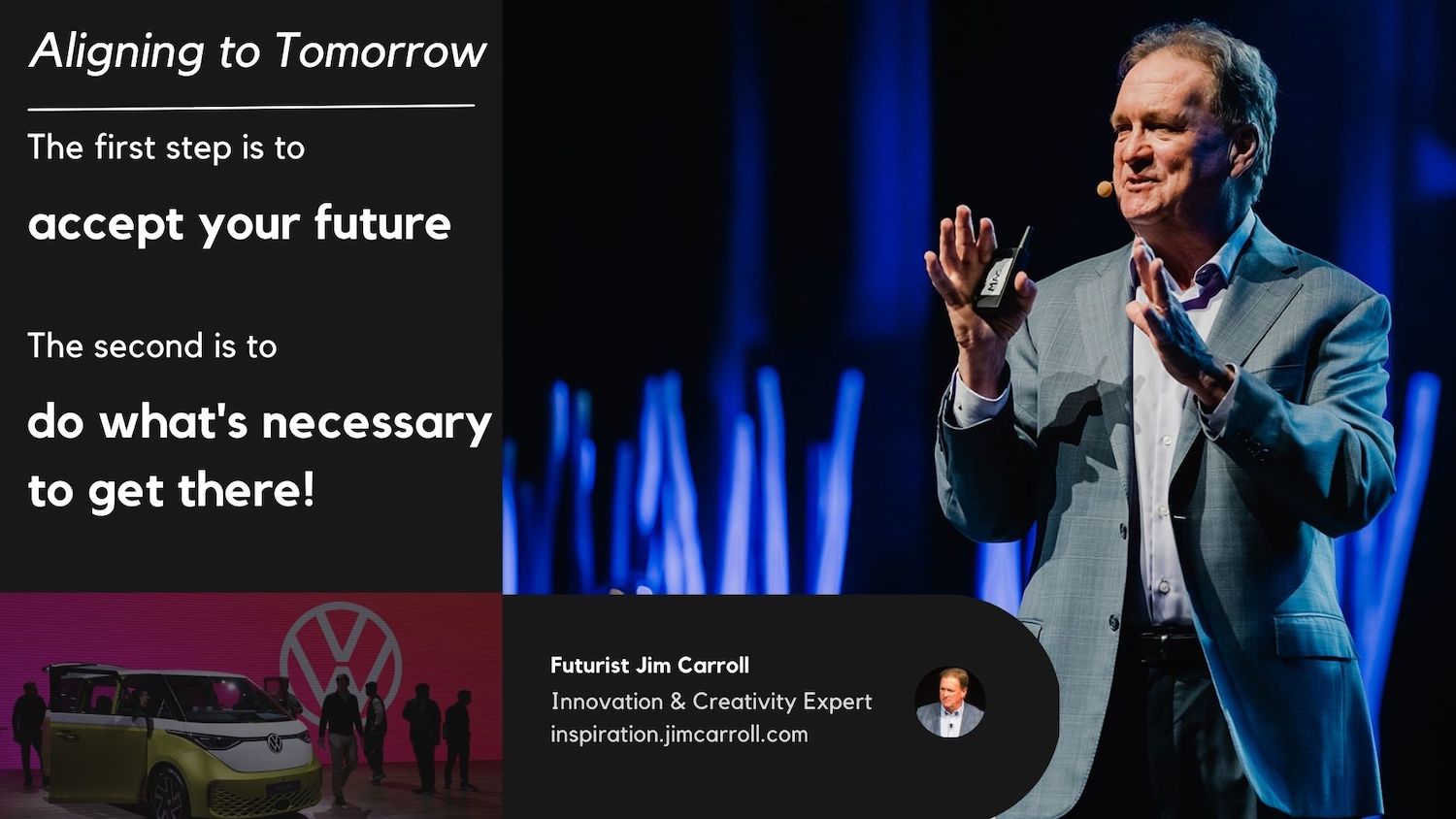“The first step is to accept your future. The second is to do what’s necessary to get there!” – Futurist Jim Carroll

Legacy automotive companies have become the Polaroids of our era.
Famous for its instant camera and film, Polaroid didn’t anticipate the arrival of digital cameras – and then actively denied its reality when it did arrive. It presumed that the foundation for its revenue – instant film -would always exist without any change. When the arrival of the digital camera arrived, heralding the end of the film era, Polaroid’s denial meant that it was too far behind in doing what was necessary to try and catch up. It filed for bankruptcy in 2001, although its brand, which was sold, lives on as a niche brand today.
Many car companies have been following the same path – for the last two or three decades, they have tried to avoid the obvious future which involves the electrification of the future. And yet, active denial in the face of an obvious future is a form of leadership negligence. Famously, a movie came out years ago, “Who Killed the Electric Car?” It’s worth a watch and is available on the most popular streaming services. To get to the core of what the documentary is about, watch this 6-minute version, which gets right down to the key points:
What’s the essence of the story? General Motors launched the EV-1 in 1997, an electric automobile that required no gas, oil, muffler, or brake changes – it was the world’s first true electric car. Yet six years later, GM recalled and destroyed the entire EV-1 fleet. Why? It was clinging to its current business model, working at speed to deny the future. Is that negligence?
Sometimes leadership negligence about the future bleeds into something much worse. I asked Bing’s GPT chat about his, and it came back with an interesting list:
Oil companies: Many oil companies have been accused of spreading doubt and disinformation about climate change, despite knowing the scientific evidence of their contribution to global warming. For example, ExxonMobil was sued by Minnesota’s Attorney General for launching a “campaign of deception”. The CEOs of ExxonMobil, Chevron, Shell and BP America recently testified before a House committee and denied lying to the public about climate change.
Tobacco companies: Tobacco companies have a long history of denying the health risks of smoking and trying to influence public opinion and policy. They have used various tactics such as creating front groups, funding biased research, attacking scientific evidence, and targeting vulnerable populations. They have also faced lawsuits and investigations for their deceptive practices.
This begs the question – in the face of accelerating climate change, is it time to place legacy auto in the same category of wilful, destructive denial as oil and tobacco? Maybe not, because if anything has become apparent in the last year, most (if not all) have come to accept the inevitability of their future. The era of gas and diesel vehicles is over – in less than ten years, the vast bulk of global transportation production will be of electric vehicles. it’s a seismic shift and it’s unfolding right now.
What can we learn from this? No matter who you are and what you do, your tomorrow will not be like today. Acceptance of your future is the first step in dealing with that change. But actually taking the steps to get there is often the hardest part – and becomes much more difficult the more you try to delay the inevitable. In that regard, these companies have a LONG way to go to get to the future. Case in point? Volkswagon recently announced that it will invest $197 billion to get to the point of having an all-electric fleet with computer technology at the core of the infrastructure and at the core of the vehicle.
I took on this topic in a podcast I did last week with a tech firm – I’ll share the podcast details when it comes out. Clearly, auto companies have been particularly egregious in this regard as they’ve tried to deny the reality of electric cars. But do they finally get it? Maybe. Here’s the full clip, just over 2 minutes in length.
Here’s part 1 to get a sense of the issue.
And part 2, how they are trying to respond.
The future is clear. Cars are transitioning from being things with complex engines that burn diesel and gas – to big rolling batteries on wheels with sophisticated computers at the heart of them.
That’s a seismic change, and that is the investment that VW – and others – must now make. I wonder if it might have been easier if they had been more accepting of their future – the first step – and made the necessary investments -the second steps – earlier.
The same thinking holds true for everything you do.
Accept your future.
Do what you need to do to get there!
‘




GET IN TOUCH
Jim's Facebook page
You'll find Jim's latest videos on Youtube
Mastodon. What's on Jim's mind? Check his feed!
LinkedIn - reach out to Jim for a professional connection!
Flickr! Get inspired! A massive archive of all of Jim's daily inspirational quotes!
Instagram - the home for Jim's motivational mind!